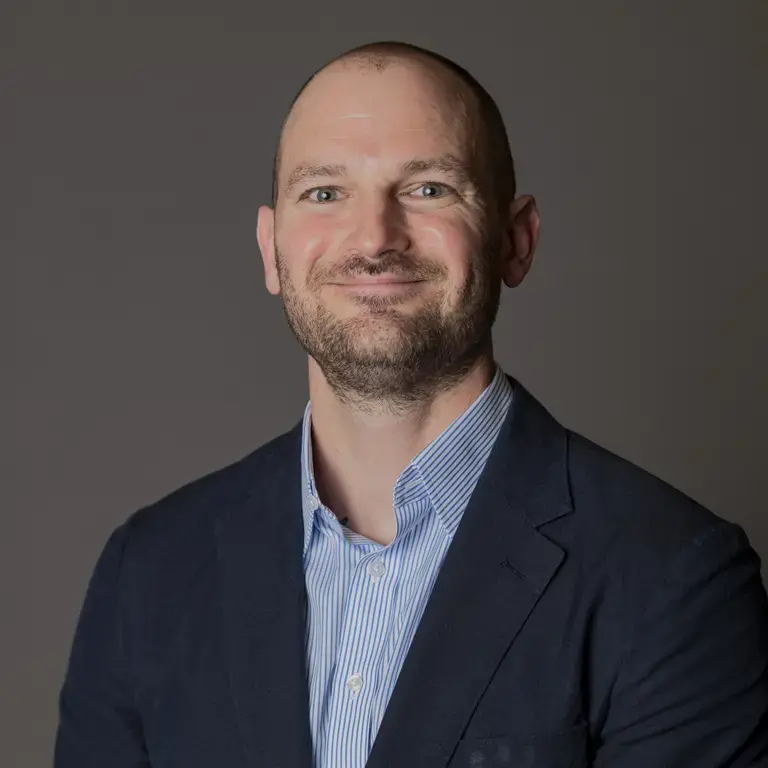By Cory Mangum, Course Associate, Insurance Management, Columbia University School of Professional Studies; Director of Risk Management, Primoris Services Corporation
During the 2023 Insurance Management residency, Harold Watkins, former head of Lloyd’s Lab North America, spoke to students and faculty about how the Lloyd’s of London-backed start-up program supports much-needed innovation in the insurance industry, providing solutions to the challenges consumers face today and in the near future.
Lloyd’s Lab participates in teaching Columbia SPS Insurance Management students about insurtech start-ups for assignments tasking students to assess start-ups as partners and supporters of innovative solutions improving operations and facilitating business growth for the students’ companies. Lloyd’s Lab also advises alumni who are creating new business ventures.
Since its launch in 2018, more than 100 start-ups from 16 countries have participated in the accelerator program, raising more than $1 billion in capital funding for innovative projects. Applicants fit into one of three themes: new products, data processes and models, or geographical-specific impact.
This article highlights Lloyd’s Lab alumni embodying innovation within these distinct themes.
New Products
A chaotic world requires innovative solutions to relieve consumers battling increased costs in various aspects of their lives. One Lloyd’s Lab alum, Gaia Family, is taking on unknown risks in today’s market, providing financial support for fertility treatments, specifically in vitro fertilization (IVF).
IVF procedures have proliferated over the past 20 years, with a reported 42 percent of Americans stating they or someone they know has used fertility treatments. Gaia’s founders were inspired by their personal experiences with fertility treatments to do something about the risk of IVF failure and provide peace of mind for the financial commitment. Their innovative insurance solution offers protection for IVF customers through their first three cycles; if no child is conceived through the third cycle, then any payments are taken care of through Gaia’s product.
This financial solution is a great example of how the insurance market is addressing real-time problems—in this case, not only the ability of individuals to create families but also declining birth rates within the United States (the general fertility rate has decreased 2 percent since 2020, according to the CDC.)
Data Processes & Models
With the increase in the amount of data being collected by insurers, technology is creating new opportunities for underwriting and claims groups to improve process efficiencies, control costs, and make intelligence-driven decisions that positively impact consumers.
A Risk & Insurance study of nearly 300 insurance executives identified underwriters’ time allocation as a major issue: With an average of 42 percent of their time spent on administrative tasks and an estimated 33 percent on core underwriting tasks, little of the pie is left for business development activities. The emergence of AI and other digital technologies has left the insurance market poised for a major shift, one resulting in better internal processes adding value to both insurers and insureds.
Sixfold is one company using technology to improve insurer operations. The platform aligns with an insurer’s underwriting guidelines to assess submissions, quickly validating whether the data inputs from prospects fit within a set risk appetite, leading to a simple “go/no go” recommendation based on supplied data.
With a streamlined user interface and shallow learning curve, underwriters are armed with AI-powered technology to assist in reviewing submissions accurately and efficiently. This results in better risk transfer options for consumers and more intelligent risk-taking for insurers.
Geographical-Specific Impact
A current challenge for vulnerable communities in developing countries is climate risk, which causes considerable damage to agriculture and infrastructure needed for survival. Introducing smart insurance solutions provides access to insurance solutions never possible before, supplying a level of protection that fosters risk-taking and resilience at the community level.
Suyana has a mission to utilize AI and other digital technologies to make climate insurance more accurate, accessible, and affordable for underserved populations impacted by climate risk. The company provides parametric and hybrid-parametric insurance for urban environments and agricultural areas within developing countries (e.g., in Latin America).
One significant benefit provided by Suyuna’s products is closing the basis-risk gap, a legacy issue within parametric-based insurance. When basis risk is close to flat, it means a reduction in uninsured losses that adversely affect local economies, providing not only a safety net on an individual basis but one insulating communities as well.
This is an edited version of Cory Mangum's article. To read the unabridged version, please see here.
About the Program
The Master of Professional Studies in Insurance Management is for career professionals who want to accelerate their advancement to leadership positions or broaden their expertise in the industry. It accommodates both professionals already working in insurance and those looking to make a career change. The program is part-time, online, and instruction is asynchronous to accommodate working professionals.



